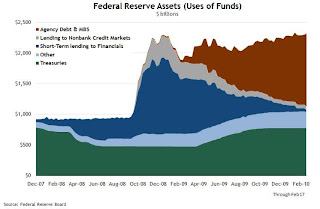Despite record-low mortgage rates and all of the talk about health care, global warming and other topics in recent months, the Obama administration is being pressured to turn its focus on the economy as of late – specifically the mortgage industry.
The housing crisis and the mortgage industry still is not fixed and the problem continues to get worse as though if it were a leaking roof. Everybody can see the spot on the ceiling getting bigger and the leak is getting worse, but the ceiling is still there and the water has not broken through just yet. One of the most recent stories this past weekend just added to the problem when Fannie Mae announced a loss of more than $16 billion for the last quarter of 2009. In addition to that, the nation’s leader in providing mortgage loan also asked for another $15 billion from the national Treasury so the company could “stay in the black.”
The reason for the problem is the rising number of people defaulting on their mortgages that they are getting from Fannie Mae. According to a recent report, there are about 8 million homeowners and condo owners who are behind on their monthly mortgage payments. Of that number, about half of them are currently going through a foreclosure. About 25 percent of the current mortgages are underwater, too, which means that the homeowners owe more on their mortgage loan than what the loan is actually worth. Further, of that 25 percent, the average mortgage loan which is in foreclosure is 18 months behind in payments. One year ago, the average foreclosure was only 11 months behind. That’s a huge difference considering it has only been one year!
In addition to that problem, the prices of homes have been constantly falling. The number of new homes sold has dropped more than 10 percent in the last 13 months and there are millions of homes that remain empty due to a homeowner just walking away from the loan or because they have already moved out and nobody is buying the property.
Some analysts are concerned that these factors combined could create another financial crisis. As a result, more and more people in high places are urging President Obama and his administration to switch their focus to the economy and specifically the housing crisis. There are a number of viable solutions, but it takes time and cooperation to put those plans into effect. Hopefully, the administration will be able to lay out some type of plan before things get much worse. We are at a crossroads where things could take a huge tumble and get much, much worse before they can get better. Whether we agree with his politics or not, let’s ban together and support the president’s decisions in an effort to get out of this jam while we still can.
Image Courtesy: pixabay.com


